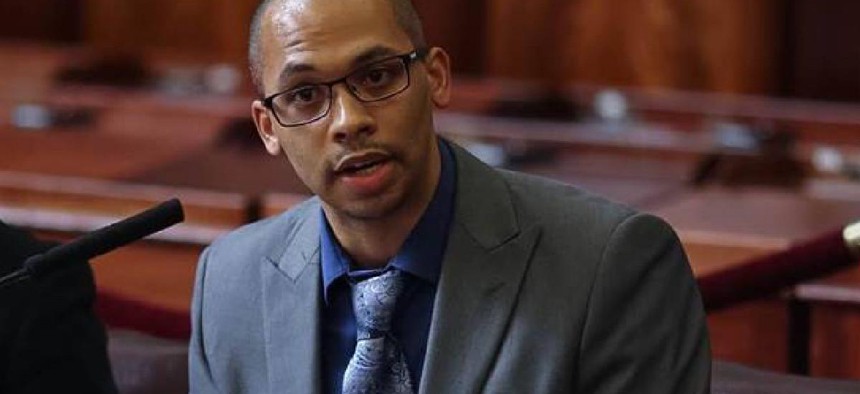New York City’s hidden literacy crisis

New York City is in the midst of a growing crisis, but it is one hidden from the front pages, since those most affected are often without a voice: it is the crisis of New Yorkers who can’t read, write or speak in English. It is shocking that in a city of 6.4 million working age adults, 2.2 million – over a third – lack English proficiency or a high school diploma. To put the scale of this crisis in context, if you took these New Yorkers and created a new city, they would tie Houston, Texas, for fourth-largest in the nation. Though they wash our dishes, drive our taxis, cook our food and care for our children, these New Yorkers are all but invisible in the city’s budget priorities.
This observation will not be surprising to any of the 6,300 adult learners who lost access to their language and education classes in 2015. Despite the protests of hundreds of students, teachers and allies who rallied on the steps of City Hall, Mayor Bill de Blasio axed over $6 million from the already anemic funding streams that support English for Speakers of Other Languages and High School Equivalency Preparation classes. As a result, thousands of New Yorkers who had been exhorted all their lives to learn English and pull themselves up by their bootstraps suddenly found that the very means to do so were no longer within reach. In a city where over 200 languages are spoken and immigrants comprise 43 percent of the workforce, the decision was perplexing and counterproductive.
Education is often referred to as the great equalizer, and for good reason. Census data consistently demonstrates that the more education an individual has, the more likely they are to be employed, and the more earnings they bring home. And this has a positive economic effect on local communities and businesses. A 2009 study by the Community Services Society pegged a high school diploma’s value to New York City at $324,000 over the diploma holder’s lifetime as a result of their increased income tax contributions and a decreased reliance on social services. According to another study done by the Lexington Institute in 2013, Spanish-speaking immigrants with limited English proficiency lose roughly $3,000 per year in earnings as a direct result of their language deficit.
At a time when the nation is focused on issues of income inequality – and nowhere more so than here in New York City, where de Blasio has made confronting inequality a central goal of his administration – funding adult literacy classes that create pathways to higher education, skills training and better paying jobs would seem an obvious strategy. Investments in adult literacy would also complement the mayor’s broader agenda. For instance, his signature accomplishment to date – the establishment of a program of universal pre-kindergarten – was embraced by the immigrant community, with thousands of children from limited English proficient households enrolling. The challenge for these children, however, will be coming home to parents unable to read to them in English, help them with their homework, or communicate with their teachers as they advance through the school system. Similarly, the mayor’s initiative to expand health care to the undocumented is laudable, but will be tested by the inability of patients to understand their medical providers or to read the instructions on their medication. Investing in adult literacy can only further the success of initiatives like these.
With this year’s budget to be decided in the coming weeks, the fate of 2.2 million adults in need of English skills or a high school diploma rests on the values and priorities of our city leaders. It is time for this silent crisis to end with a real investment in adult literacy programs. Over 15,000 New Yorkers currently sit on waitlists for literacy classes, and with just a $16 million investment – .0002 percent of the mayor’s proposed budget – nearly 9,000 of them could be served. They deserve no less.
Kevin Douglas is Co-Director of Policy and Advocacy with United Neighborhood Houses of New York (UNH), a membership organization serving 38 settlement houses throughout New York City.